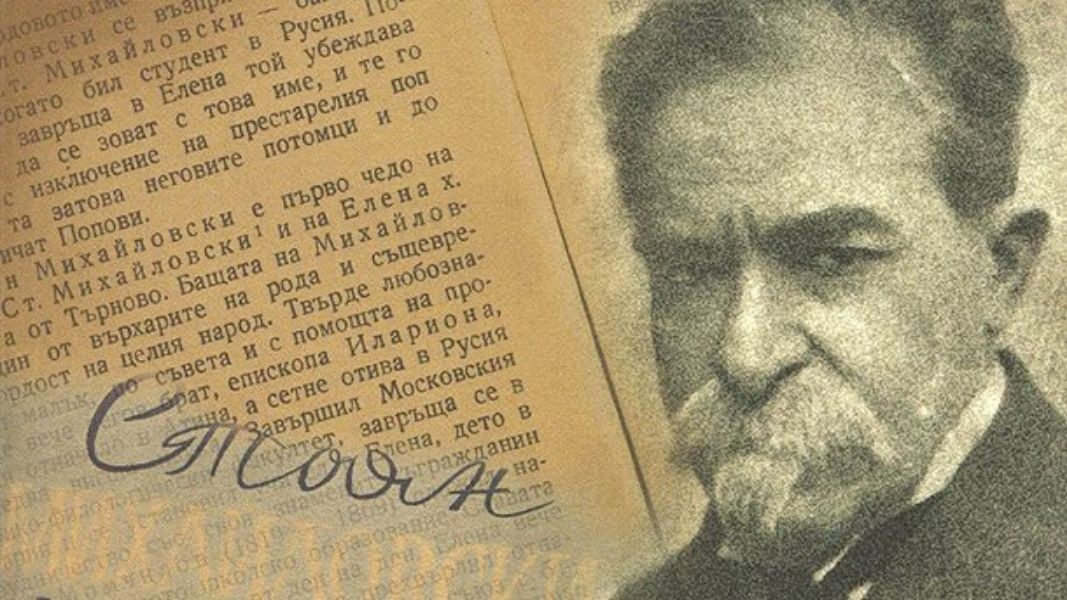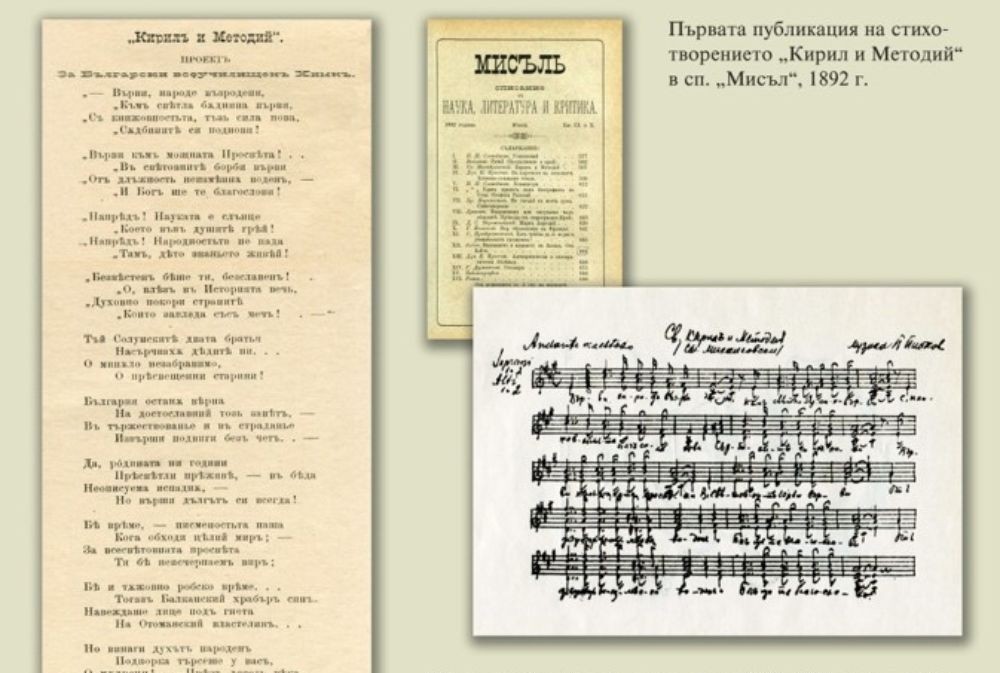The first Bulgarian hymns in honor of education and science were written in the town of Elena, located in the Balkan Mountains. Elena was a well-known commercial and cultural center during the 18th and 19th centuries, and its residents actively participated in almost every significant historical event of the Bulgarian National Revival. The first authors of the laudatory texts were the enlightener and scholar Stoyan Robovski, Ivan Momchilov – the founder of the school in Elena, teacher Yordan Nenov, and Ivan Karshovski, a graduate of the school.

The fifth hymn belongs to Stoyan Mihaylovski who was born to a prominent Bulgarian National Revival family in Elena, was a graduate of the local school and the son of the prominent teacher Nikola Mihaylovski. The poem "Varvi, narode vazrodeni" (March ahead, O Revived People) was completed in April 1892. At that time, its author Stoyan Mihaylovski was a French language teacher at the Men’s High School in Ruse. The text of the hymn was published in the magazine "Misal" (Thought) with the original title "Cyril and Methodius", a subtitle "Project for a Bulgarian National School Hymn", and a note stating – "Ruse, April 15, 1892."

Nine years later, Panayot Pipkov, a music teacher in Lovech, was tasked with composing a new song for the students to perform on May 11 – the church feast of Saints Cyril and Methodius. Pipkov was unable to find a suitable text by May 9, and he described the event in his memoirs: "A few days before May 11, during the 1900-1901 school year, I had a singing class with third-graders at the Exarch Joseph I Men’s School in Lovech, where I was teaching for the first time. I had to write a new song for the students, but I didn't have a ready and suitable text, so I decided to postpone writing it until the next class. One of the students had bent over a textbook and was reading with great interest a poem dedicated to Saints Cyril and Methodius, written by our eminent poet Stoyan Mihaylovski. Since I was looking for a text, I leaned over to read the unknown poem. Before I had even read half of the verses, music already began to sound in my head. Composing the music for four homogeneous voices took no more than fifteen minutes. Just after the first choral performance, the bell rang, but the students, many of whom were also singers in the school church choir I led, stood up and asked if we could spend the break singing the new song several times. They didn't even wait for my response and began singing with such fervor and joy that all the noise from the break faded away''.

On May 11, 1901, "March ahead, O Revived People” was performed for the first time in Lovech as a festive hymn – a praise of the holy brothers Cyril and Methodius and their work for Bulgarian enlightenment. From the following year, 1902, the song began to be sung in all Bulgarian schools.
Today, the benchmark performances are considered to be those by the Children's Choir of the Bulgarian National Radio, conducted by Academician Hristo Nedyalkov and the "Bodra Smyana" Choir, led by the unforgettable Lilyana Bocheva.
Translated and published by Kostadin AtanasovOften described as “the Bulgarian Verdi” or “the Bulgarian Puccini,” composer Parashkev Hadjiev (1912–1992) has long been recognised as a central figure in Bulgaria’s operatic tradition. The country’s most prolific creator of musical-stage works, he left..
Admirers of schlager music and expressive stage presence are certainly looking forward to the pre-Christmas meeting with Veselin Marinov. It has already been a long-standing tradition for the singer to have a concert in the National..
Photos: ubc-bg.com, архив, Facebook/ Filmotechno podcast Discover more Bulgarian music in Radio Bulgaria's series "Highlights of Bulgarian musical culture": Highlights of Bulgarian musical culture: ''Barefoot times'' -..

+359 2 9336 661
